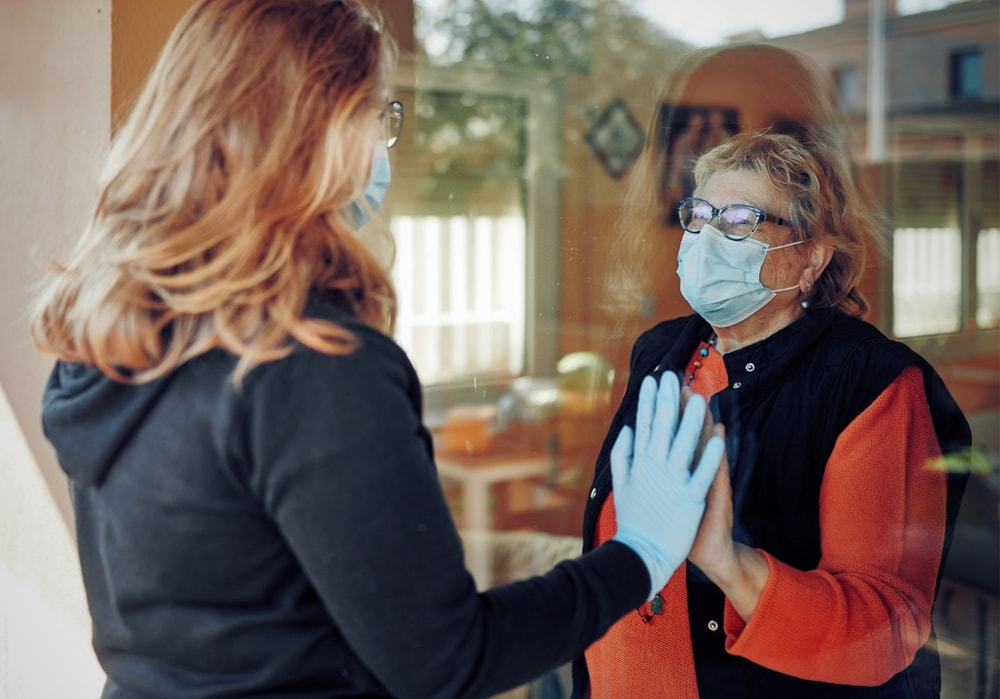Blog
Pandemic Fatigue: Tips for Coping

After months of being proactive against COVID-19, countless people are exhausted from dealing with pandemic fatigue. From the tragic number of lives lost to the loss of life as we knew it, many are burned out from the endless news cycles, politics and social distancing.
As a result, “Pandemic Fatigue” is the term used to describe the “feelings of restlessness” brought on by months of coping with COVID-19. It affects people of every age, location and socioeconomic background and remains a problem worldwide.
At this point, common symptoms of pandemic fatigue may include fear, anxiety, loneliness, frustration, irritability, sadness, helplessness and hopelessness. But there can be physical symptoms as well:
- The inability to eat or sleep as normal
- Having trouble focusing
- Feeling edgy or nervous
- Withdrawing from others
- Lack of motivation for projects, activities, etc.
- More argumentative
If you find yourself, or perhaps someone you know, experiencing any of these symptoms, there are many steps you can take to make dealing with pandemic fatigue more bearable.
11 Ways to Deal with Pandemic Fatigue
Recognize You Are Not Alone
First of all, it is essential to understand that you are not alone. A study has found that depression rates have increased 3x higher during the pandemic, and the Centers for Disease Control and Prevention (CDC) has found that 40% of adults have had problems with anxiety, depression or substance abuse. So while you might think you are the only one feeling stressed, tired, etc. regarding the pandemic, you aren’t.
Make a Commitment
If you haven’t already done so, decide to make the 3 Ws a part of your life: Wear, Wait and Wash. As a chosen habit rather than something you have to do, it will become more familiar and commonplace.
Be Flexible
Recognizing that as time goes by, there will be additional information available to help us combat the virus. Make it a point to stay up to date through a reliable news source on any lifestyle changes needed to help us put the pandemic behind us.
Keep Supplies Handy
Masks and sanitizers are now par for the course. Make life a little easier by keeping them in a location where you can access them easily. This way you don’t have to stop and look for them when leaving the house. Consider keeping extras in your vehicle, so you have them ready when venturing out.
Take Care of Yourself
Not just by following the 3 Ws, but by making healthy choices in your daily habits. Be sure you are getting enough sleep (at least seven hours a night), maintaining a healthy, nutritious diet, and making time daily to exercise. Yoga, walking or taking advantage of the many online exercise routines can make a big difference. By doing your part to boost your physical health, you can help improve your mental health.
Minimize News Intake
While it is essential to stay up to date on the changes and new insights into the coronavirus, please don’t spend all your time reading, watching and listening to information about it. This information overload will only add to your stress levels. Take a break from it for a few days and see if it helps you feel better. The chances are good that it will!
Lower Your Stress
Look for activities that help you relax. It might be doing a puzzle, reading a book or cooking an elaborate meal. Whatever it is that helps you unwind, make time for that.
Connect with Others
Humans are social beings by nature, so it is challenging when we have to minimize interactions. Thankfully, we live in a time when connecting with others without physical interaction is easier than ever before.
Here are just a few of the ways you can stay connected:
- Make phone calls
- Arrange video meetings (Zoom, Google Hangouts, Skype)
- Chat via social media
- Write letters (always fun for grandparents and the grandkids!)
- Take a live online class
- Have a socially distanced hangout outside with friends or family
- Schedule a watch party with Facebook and enjoy a movie or show with your friends
- Attend online church services – those with live streaming are often very good!
Set New Traditions
Find something new to incorporate into your routine. It might be making a specific time of the week a “new food” night or a self-care day. Have a scheduled online game night with friends or any other activity that pleases you. Looking for ways to be creative and establish a new routine will help shift your focus towards something fun.
Look for Humor
Have you heard the one about COVID-19? Probably not, but that doesn’t mean you have to stop laughing. Watch your favorite comedian online, create a comedy watchlist on a streaming service or listen to a comedic podcast. Or make a Zoom call with someone you know who has a great sense of humor and spend time laughing together.
Be Thankful
Take a few minutes to count your blessings. Sure, 2020 has not been at all what you expected it would be. Still, if you sit back and think about it, you are sure to find things to be thankful for. It might be that your family is happy, you recently found a new passion or that today is a beautiful day. Focusing on whatever makes you happy makes it easier to avoid stress, anxiety and frustration.
Dealing with the pandemic is challenging and unprecedented, but it is our current reality. Using many of these coping tips will help make “pandemic fatigue” less tiring.
If you have helpful ways to deal with the pandemic, we would love to hear about them!